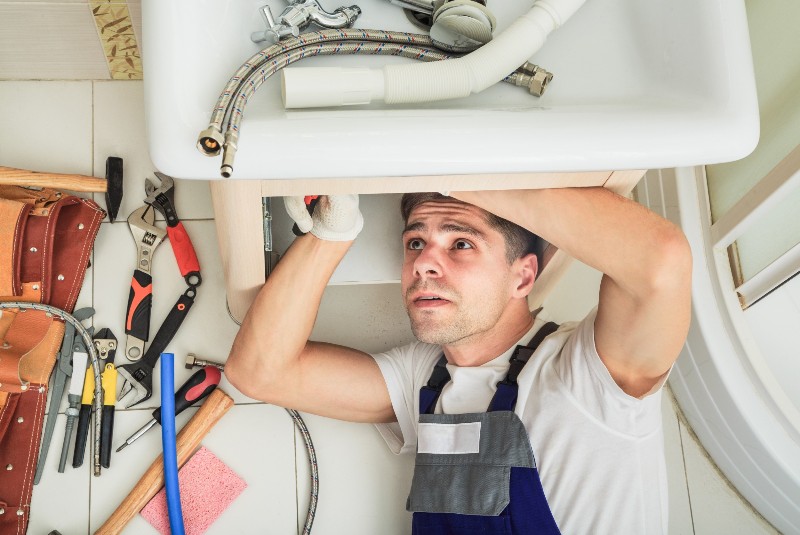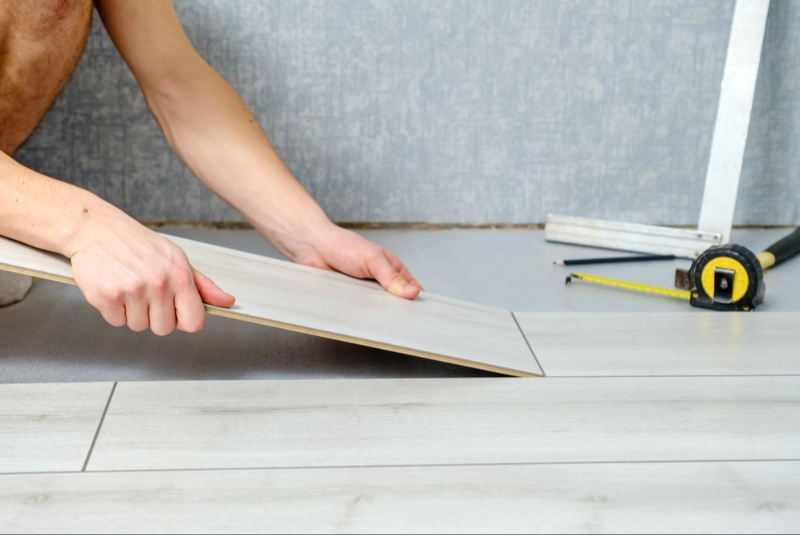Your home’s appliances work hard every day—keeping your food fresh, your clothes clean, and your living space comfortable. But like anything mechanical, they won’t last forever unless they’re properly maintained. The good news? With regular care and a few simple habits, you can extend the life of your appliances and avoid expensive repairs or replacements.
Whether it’s your refrigerator, dishwasher, washing machine, or even your microwave, preventive maintenance goes a long way. Here are practical ways to keep your household appliances running efficiently for years to come.
1. Refrigerator: Keep It Clean and Well-Ventilated
Refrigerators are one of the most essential—and energy-consuming—appliances in your home. To keep yours operating efficiently:
-
Vacuum the coils: At least twice a year, clean the condenser coils (usually located at the back or bottom of the unit) to remove dust and debris. Dirty coils force your fridge to work harder, using more energy and shortening its lifespan.
-
Check the door seals: A weak or dirty door gasket can allow cold air to escape. Wipe down the seals regularly and replace them if they’re cracked or no longer sealing properly.
-
Set the right temperature: Keep the fridge at 37–40°F and the freezer at 0°F to balance efficiency and food safety.
-
Don’t overfill it: Air needs to circulate for consistent cooling. Overpacking your fridge forces the compressor to work harder.
Regular maintenance not only keeps your food fresher but also reduces strain on the appliance’s internal systems.
2. Dishwasher: Rinse, Clean, and Use It Right
Dishwashers can save time and water, but they need regular upkeep to prevent buildup and breakdowns.
-
Clean the filter: Most dishwashers have a filter that traps food particles. Rinse it out weekly to avoid clogs and unpleasant odors.
-
Run hot water before starting: This ensures your dishwasher begins its cycle with hot water, improving cleaning efficiency.
-
Use dishwasher cleaner monthly: Special cleaning products help dissolve grease, soap scum, and mineral deposits that build up over time.
-
Avoid overloading: Cramming too many dishes can block spray arms and result in poor cleaning—and can also damage moving parts.
A well-maintained dishwasher will clean better, use less water, and last longer.
3. Washing Machine: Balance Loads and Prevent Mold
Your washing machine deals with dirt, detergent, and water on a regular basis—and without maintenance, it can develop buildup or mold issues.
-
Don’t overload it: Excess weight strains the motor and drum. Follow your manufacturer’s capacity recommendations.
-
Use the right detergent: Especially for high-efficiency (HE) washers, only use HE-labeled detergent to prevent excess suds and residue.
-
Clean the drum and gaskets: Run a monthly cleaning cycle with washing machine cleaner or a mix of white vinegar and baking soda. Also, wipe down the door gasket to prevent mold.
-
Leave the door open: After each load, keep the door ajar for a few hours to allow moisture to escape and reduce mildew growth.
These small steps will help prevent major mechanical issues and keep your laundry smelling fresh.
4. Dryer: Keep It Lint-Free and Ventilated
Dryers are convenient, but they can become fire hazards if not properly maintained.
-
Clean the lint filter after every use: This is the easiest and most effective habit to maintain airflow and prevent overheating.
ADVERTISEMENT -
Inspect the dryer vent: At least once a year, check the duct leading outside for lint buildup. A clogged vent reduces drying efficiency and poses a fire risk.
-
Don’t overload: As with washing machines, overloading puts strain on the motor and can lead to premature wear.
-
Check the drum and seals: If you notice unusual noises or clothes getting caught, inspect the drum and seals for damage.
Efficient dryers not only dry clothes faster but also reduce energy costs.
5. Oven and Stove: Keep It Clean and Safe
Your oven and stove can last for many years with regular cleaning and proper use.
-
Wipe spills immediately: Baked-on food is harder to clean and can damage heating elements over time.
-
Clean the oven regularly: Whether you use a self-cleaning function or manual scrubbing, aim to deep-clean your oven every few months.
-
Inspect burners: For electric stoves, check for bent coils or uneven heating. For gas stoves, ensure that the flame is blue—yellow flames may indicate incomplete combustion or a blocked burner.
-
Avoid using foil to line ovens: This can block airflow and damage the interior surfaces.
Clean appliances not only work better—they're safer and more pleasant to use.
6. Microwave: Prevent Splatter and Odor
Microwaves are simple, but they still benefit from regular upkeep.
-
Cover food while heating: Use a microwave-safe lid to prevent splatter and reduce interior mess.
-
Wipe down regularly: Steam-clean the inside by microwaving a bowl of water and lemon slices for a few minutes, then wipe with a cloth.
-
Check the door seal: Make sure it closes tightly and isn’t damaged, as leaks can reduce heating efficiency.
-
Avoid running it empty: This can damage the magnetron (the part that generates microwaves).
A clean microwave is not only more sanitary—it also heats more efficiently.
7. HVAC System: Replace Filters and Schedule Tune-Ups
While not always thought of as an “appliance,” your HVAC system plays a critical role in home comfort and energy use.
-
Replace filters regularly: Every 1 to 3 months, depending on usage and filter type. Dirty filters reduce airflow and make the system work harder.
-
Clear the outdoor unit: Keep debris, leaves, and grass away from the exterior AC unit to allow proper airflow.
-
Schedule professional maintenance: At least once a year, have a technician inspect and tune up your system to catch issues early.
Routine maintenance can extend the life of your heating and cooling systems and save you money in the long run.




